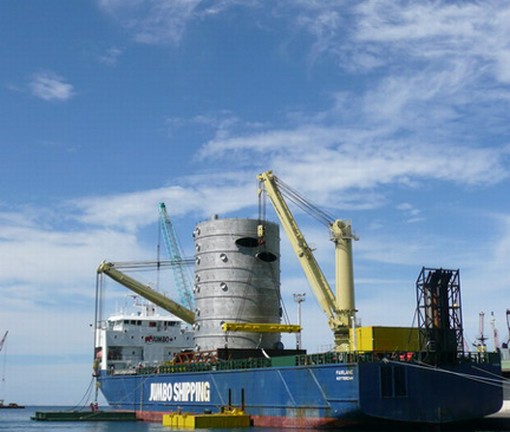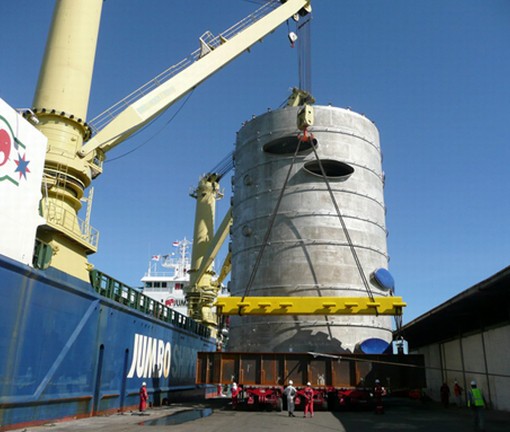|
||
| Sulphuric Acid on the WebTM | Technical Manual | DKL Engineering, Inc. |
Knowledge for the
Sulphuric Acid Industry
![]()
Sulphuric Acid on the Web
Introduction
General
Equipment Suppliers
Contractor
Instrumentation
Industry News
Maintenance
Acid
Traders
Organizations
Fabricators
Conferences
Used
Plants
Intellectual
Propoerty
Acid
Plant Database
Market
Information
Library
Technical Manual
Introduction
General
Definitions
Instrumentation
Plant Safety
Metallurgial
Processes
Metallurgical
Sulphur Burning
Acid Regeneration
Lead Chamber
Technology
Gas Cleaning
Contact
Strong Acid
Acid Storage
Loading/Unloading
Transportation
Sulphur
Systems
Liquid SO2
Boiler Feed Water
Steam Systems
Cooling Water
Effluent Treatment
Utilities
Construction
Maintenance
Inspection
Analytical Procedures
Materials of Construction
Corrosion
Properties
Vendor Data
DKL Engineering, Inc.
Handbook of Sulphuric Acid Manufacturing
Order
Form
Preface
Contents
Feedback
Sulphuric Acid
Decolourization
Order Form
Preface
Table of Contents
Process Engineering Data Sheets - PEDS
Order
Form
Table of Contents
Introduction
Bibliography of Sulphuric Acid Technology
Order Form
Preface
Contents
Construction - Transportation
January 26, 2018
|
Truck Gas-to-Gas Heat Exchangers Converters Towers FRP Equipment Ducting Ocean Freight |
Associated Links |
On the journey from fabricator to plant site, virtually 100% of all equipment will be move by truck at some stage of the journey. There are a variety of trucks available designed to carry virtually any load. Factors affecting truck transportation are:
| Gas-to-Gas heat
exchangers are some the heaviest pieces of acid plant equipment that will
need to be transported. Shipping limitations will sometimes dictate the
size of the exchanger or whether or not the unit is split into two shells.
Tubing of the exchanger on site may also be required due to weight
limitations of the available trucks or road restrictions. Multi-axle trailers are required for most exchangers. Special escorts and temporary roads closure may be required due to the size of the equipment. |
||
Converters are most often field fabricated due to its large size. In a few rare cases a converter can be shop fabricated when the plant is small and there are few if any shipping restrictions. These photos show the shipment of the bottom section of a stainless steel converter. The load is extremely wide blocking off both lanes on the highway. |
||
If a drying or an absorbing tower is small enough to be shop fabricated and then shipped to site, it will save a lot of time during construction. Towers are simply empty shells. The weight is not high but the size of the tower makes it difficult to transport. The gas inlet nozzle is often left off during transportation because it sticks out from the round shell and may cause the load to exceed shipping limits. |
|
| It is desirable to fabricate FRP equipment in as large a piece as possible to avoid field fabrication and field joints on the shell of major vessels. This results in the need to transport large vessel. The advantage of FRP equipment is its lightweight for transportation. Transportation of the large vessels often requires traffic restrictions as illustrated above. | ||
Gas ducting will generally be fabricated in the shop in spools that can be shipped. The length and size of the spools will depend on the shipping restrictions. Ducting is not heavy but comes in ackward shapes that must be supported to avoid damage to the ducting.
Maximizing the amount of shop fabrication will minimize the erection time required and the overall cost of the project. Expansion bellows, dampers, reinforcing rings, brackets, etc. should all be spooled up with the duct in the shop. All expansion joints should be equipped with brackets to prevent movement of the expansion joint during shipment. The photo illustrates how two elbows in the same plane can be spooled up with all the attachments and still be shippable on a flat-bed truck.
Ocean freight is required when equipment is manufactured in one country and must be shipped to another country half way around the world. Virtually anything can be shipped by ocean freight due to the variety of ships available.
| Heat exchangers fabricated in Canada are shipped to site in a special self-loading ship. The exchangers are stored below deck. Cargo covers are in the process of being removed in the photo on the right. The exchangers were shipped without the tubes installed due to weight limitations. The exchangers will be off-loaded by the ship's crane onto the waiting trucks. | ||
Converter shipment for the Ambatovy Nickel Project in Madagascar

